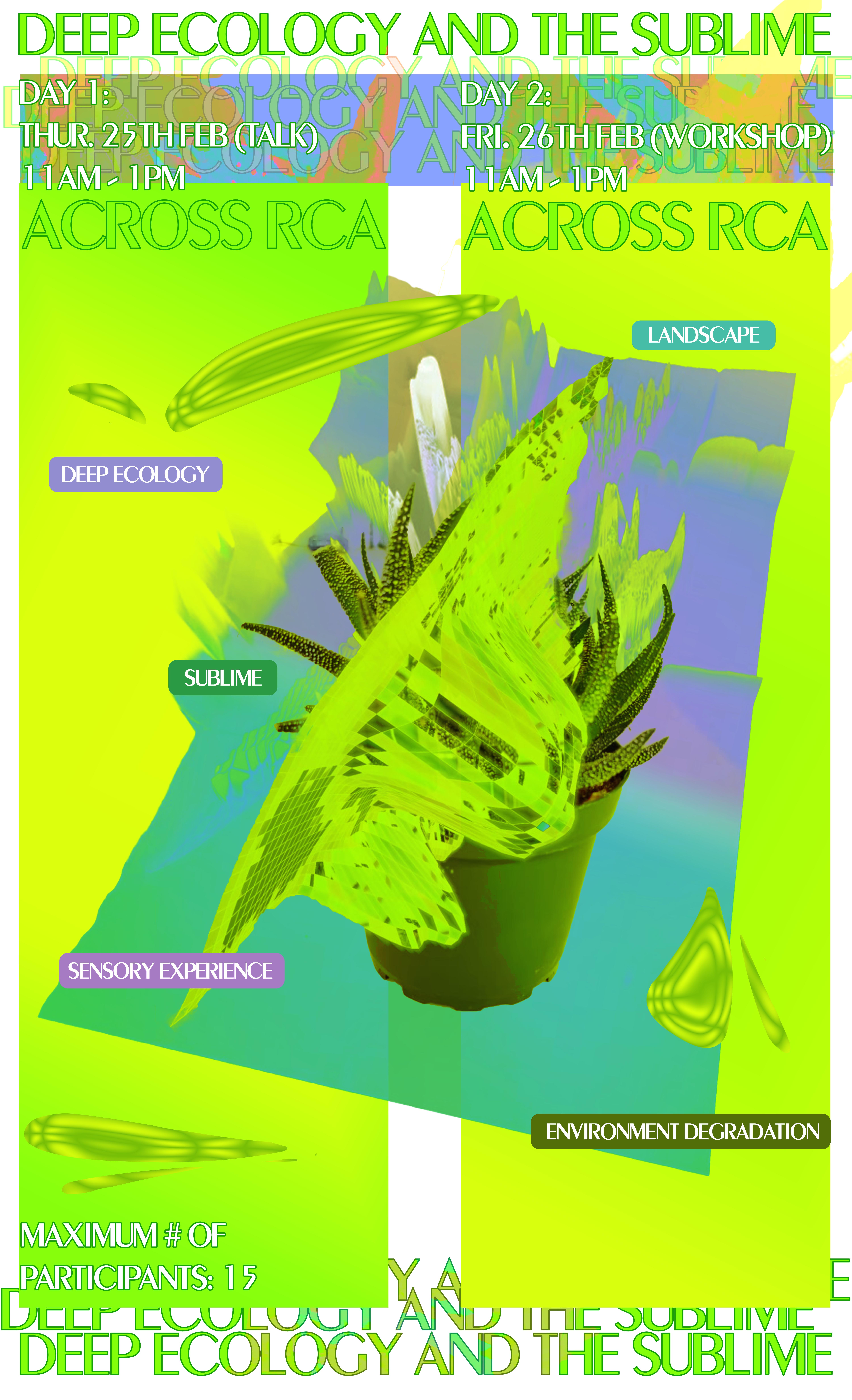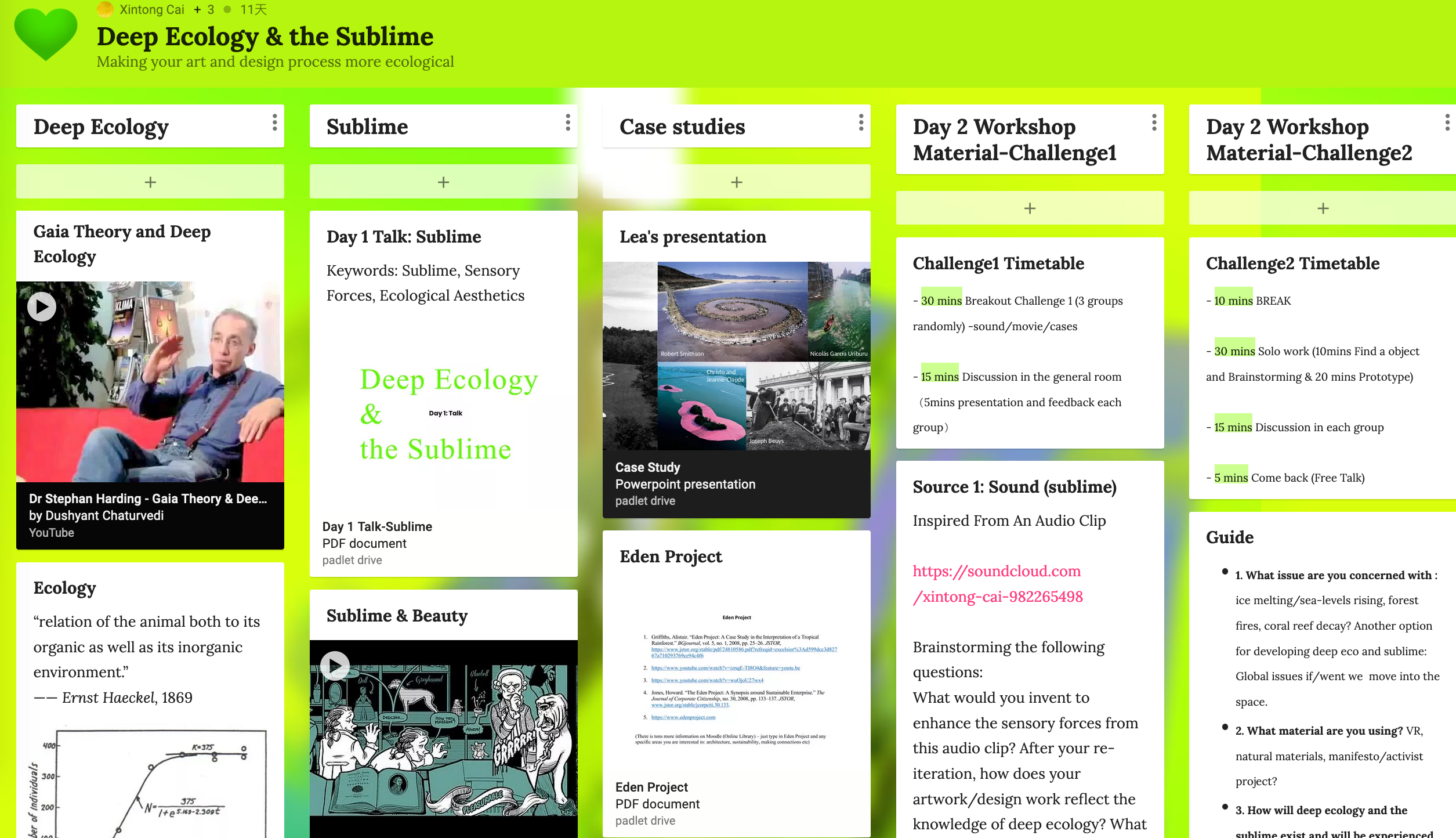Deep Ecology and The Sublime

Royal College of Art - AcrossRCA / 2021
#AcrossRCA is an annual, week-long programme that offers students the opportunity to collaborate across disciplines.
Make Your Art & Design Process More Ecological
Session Leads: Shontelle Xintong Cai, Lea Rose Kara
Team Members: Jia Fei and WenQing Yao
Duration: 2 days
Session Outline:
In the context of post-humanism, the ecological connections and inherent worth of human and non-human beings are discussed in depth. How can we learn and reflect on theories of deep ecology, whilst at the same time reviewing the self from an ecological perspective? If other agencies are imbued with meaning or feeling of the sublime, would it be helpful for humans to reconsider their connections to those other agencies, and ecological space? As contributors to the creative field, how can we explain and create a sublime experience for our audience?
The two-day workshop aims to analyze and explore the possibilities and methodologies of creating the sublime by introducing a sensory experience. Since the workshop will be organized as a continuous session, with both days being tightly interconnected, we encourage participants to attend both days to gain the full experience. Day 1 will introduce the framework of deep ecology and the sublime and day 2 will enable you to experiment and put that theory into practice. Participants will be expected to contribute to group discussions and collaborate with others with the aim of presenting their ideas and outcomes to the big group.
Keywords: deep ecology, environment degradation, landscape, sublime, sensory experience.
Timetable:
Day One - Thursday 25 th February (Talk) 11am - 1pm GMT
Theories
-
Introduction of Deep Ecology
-
Introduction of the Sublime
-
Introduction to Deep Ecology and the Sublime in art
-
Joseph Beuys and Olafur Eliasson (15 mins) do we need to include the time for this?
-
Marina Abramovic and the Eden Project
Day Two - Friday 26 th February (Workshop) 11am - 1pm GMT
-
Summary of Day 1’s ideas and intro into the workshop’s aims
-
Breakout room challenge 1
- Presentation of ideas/artworks to the general group + intro to challenge 2
-
Breakout room challenge 2
- Presentation of ideas/artworks to the general group
- Concluding thoughts, questions and ideas for future work
Day 1 Talk
Day 2 Workshop



